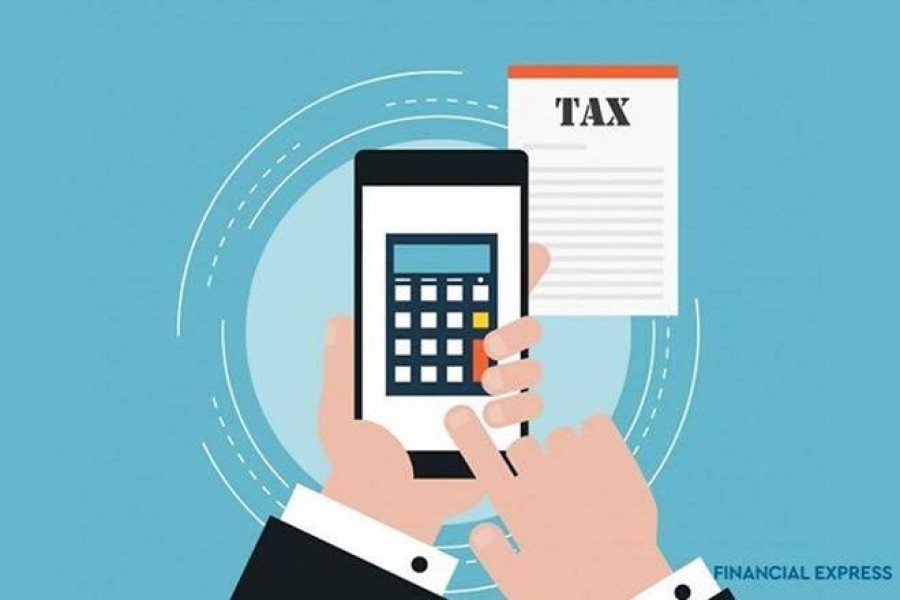Current gas tariffs at consumer level has been fixed in a "faulty manner" through calculating less value-added tax than the actual payable quantum, revenue officials say in an indication at an extra load on the bloated bills.
Economists, however, question the justification for imposing this tax on essential public utilities, VAT is levied on usages of gas, electricity, phone et al in Bangladesh, at rather higher rates.
The Value Added Tax (VAT) authority at the National Board of Revenue (NBR) has detected the existing gas tariffs at consumer level faulty for not including proper amount of VAT as per law.
VAT officials urged Petrobangla and Bangladesh Energy Regulatory Commission (BERC) to amend the tariff structure immediately for avoiding further legal and financial complexities, the officials said.

The Large Taxpayers Unit under the VAT wing identified the flaws in VAT calculation by BERC on its latest gas tariffs levied on power, captive power, fertilizer, large, medium and small, cottage and other industries, tea industry, commercial (hotel and restaurant), compressed natural gas (CNG) and household usage.
The government increased gas prices on June 6, 2022 by 22.8 per cent on average.
In an analysis of BERC gas-tariff order, obtained by the FE, the LTU found that Petrobangla would not
be able to deduct actual amount of VAT from consumers in different stages from gas bill.
For example, per-cubic-metre gas costs Tk 5.0200 on supply of electricity and VAT is inclusive Tk 0.6548. However, the BERC has shown VAT as 0.6050 per cubic metre, 0.0488 less than the actual amount deductable, the analysis shows.
The VAT authority has found mismatch in actual deductable VAT and BERC's VAT calculations in all of the eight sectors for consumer-level gas tariffs.
The BERC also refrained from calculation of VAT from 'Gas Development Fund', 'Energy Security Fund' and 'BERC Research Fund'.
"It is a legal obligation to calculate VAT on entire gas tariffs otherwise there might be situation created for seeking 'support for shortfall'," says LTU-VAT commissioner Wahida Rahman Chowdhury.
The LTU sent letters addressing the issue to the NBR high-ups, BERC, and Petrobangla seeking cooperation and immediate action on the lacunae.
In the letter the unit says it is the NBR that has the sole authority to decide on VAT-and Supplementary Duty (SD)- related matters, not the BERC.
The LTU commissioner says the situation like 'support for shortfall' is a troublesome issue for the government.
"During gas-tariff-fixation meeting, two representatives of the VAT wing clearly stated the issue for proper VAT calculation," she adds.
Delay in amendments of the order would create huge arrears with the Petrobangla again as the government did not waive VAT on gas tariffs, she notes.
Already, LTU is struggling to realise Tk 30 billion undisputed arrears from Petrobangla that was settled in 2017-18.
Currently, there is no scope of book adjustment as the finance division has introduced ibas++ for accounting purpose.
A senior BERC official says the NBR notified Petrobangla about their findings. However, the BERC has yet to take any decision as to how the gas tariffs and VAT would be adjusted.
Economists, however, questioned justification of such levy on the utility services when consumers are facing multiple pressures due to a surge in cost of living.
Distinguished fellow of the Centre for Policy Dialogue (CPD) Prof Mustafizur Rahman says the NBR may claim the VAT as per law as it is assigned to collect the tax, but the government should re-think the justification for keeping such tax rather than tagging it to public utility tariffs.
"It could be assessed whether the tax increases pressure on entrepreneurs, manufacturers and consumer'.'
Dr Rahman mentions that India has waived 10-percent excise duty on its petroleum products following price hike of liquefied natural gas on the international market.
"The central government of India adjusts fuel prices with the upward and downward adjustments of prices in the international market while it is administered in Bangladesh," says the economist, regarding the recent oil-price hike in Bangladesh and general price rises and transport-fare increase under cascading impacts.
In the just-past financial year 2021-22, the NBR collected Tk 32.39 billion in VAT from five major gas- supplying units: Petrobangla, Rupantarita Prakritik Gas Co Ltd, BAPEX, Sylhet Gas Field Ltd, and Bangladesh Gas Field Ltd.


